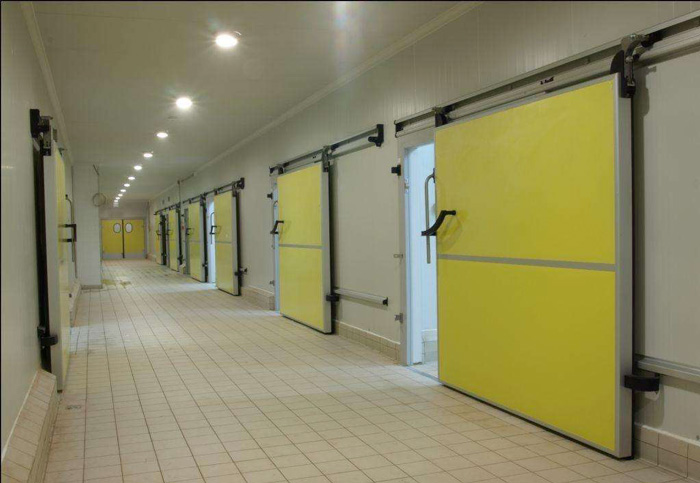There are probably four reasons for the blockage of the refrigeration system:
1. The debris is blocked;
2. Ice block;
3. The solenoid valve is broken;
4. The expansion valve is broken, etc.
1. Clogged by debris
Because the refrigeration system has strict requirements in all links of production and manufacturing, it is necessary to ensure that each link must be cleaned. However, most of the cold water (refrigeration) machine manufacturers currently purchase parts and then assemble them. In this way, it is inevitable that some systems will be impure, which will cause system blockage in severe cases (generally blockages occur in filters or expansion valves).
Therefore, manufacturers of cold water (refrigeration) machines have installed “filters” in the refrigeration system to filter out impurities in the system. When the impurities in the pipes of the refrigeration system accumulate to a certain degree, the filter will be blocked, which will affect the refrigerant throughput of the system. In severe cases, a low-pressure failure will occur.
Recognition: If the filter is clogged due to a dirty system, it will only cause the cooling capacity of the equipment to decrease, and you will not even feel affected. When the “filter” is slightly clogged, there will be a temperature difference between the entrance and exit of the “filter”, which can be felt when you hold the entrance and exit with your hand. In severe cases, the filter will appear condensation or frosting.
If it encounters condensation or frosting on the filter (when the machine is in operation, it is not counted when the condensation occurs when the machine is stopped), it can be judged as a clogged filter.
Treatment: Replace the filter of the same model.
2. Ice blocking ice blocking
In essence, there is moisture in the system pipeline. The moisture in the system runs with the refrigerant until the throttle valve (expansion valve) undergoes throttling and expansion, and forms a low temperature and low-pressure state at the throttle valve outlet. When the evaporation temperature (throttle valve outlet) When the temperature is lower than the freezing point, the moisture in the refrigerant will form ice here, which will block the throttle (expansion valve) and cause a low-pressure fault. The ice block occurs at the outlet of the throttle valve (expansion valve).
Treatment: It is best to use a detachable filter, which is equipped with “calcium chloride” (a powerful absorbent material) to thoroughly filter the water in the system several times, and then replace it with a disposable of the same model filter.

3. The solenoid valve is broken
The solenoid valve is an indispensable accessory in the refrigeration system, which has the effect of protecting the safety of the system (cut off the refrigerant when the compressor stops working and prevents the refrigerant from continuing to flow to the evaporator. If there is a large amount of refrigerant in the evaporator after the compressor stops, When the compressor is restarted next time, it is easy to cause the compressor valve to be liquid hit and damage the compressor). When the solenoid valve is damaged, the flow of refrigerant is blocked, causing a low-pressure failure. At present, most manufacturers have omitted solenoid valves in order to reduce costs, but this also leaves hidden dangers for the equipment.
Recognition: It is better to distinguish if the solenoid valve is broken, and there are two situations for the solenoid valve to be broken:
1. The solenoid valve coil is burnt and the hair film cannot be opened. Use a multimeter to measure the solenoid valve coil to determine whether the solenoid the valve is burned out;
2. The solenoid valve body itself is broken, causing the membrane inside the valve to not open. When there is a temperature difference between the inlet and the outlet of the solenoid valve, it indicates that the solenoid valve is defective.
4. The expansion valve is damaged
The expansion valve is one of the four major components of the refrigeration system and is an indispensable component. After the condensed low-temperature and high-pressure refrigerant flows through the expansion valve, it is throttled by the expansion valve and expands and evaporates at the outlet of the expansion valve to form a low-temperature and low-pressure gas-liquid mixed refrigerant, thereby taking away heat from the system and forming a refrigeration process.
Expansion valves are divided into mechanical expansion valves and electronic expansion valves. The mechanical expansion valve is affected by the environment during use. Some environments have corrosive gases that will corrode the liquid, causing the expansion valve to corrode.
Most of the expansion valve’s temperature sensing bulb leaks (the connecting pipe connecting the temperature sensing bulb and the valve body is corroded) ). Although the electronic expansion valve has the advantages of a large temperature control range and high precision that the mechanical expansion valve cannot surpass, it has an independent control system, which also increases the failure rate invisibly.
Treatment: If the expansion valve is damaged, only replace it.
If you would like to know more, please contact us.
